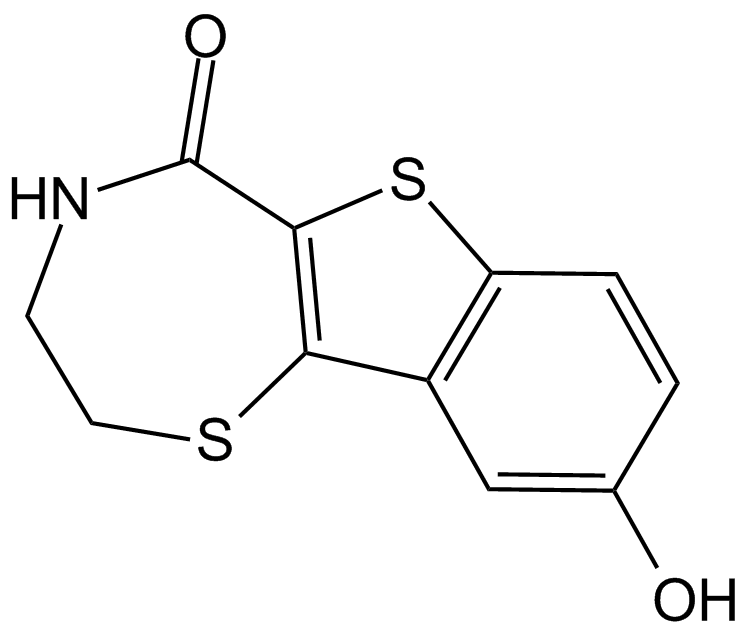kb NB 142-70 |
| Catalog No.GC11319 |
A selective PKD inhibitor
Products are for research use only. Not for human use. We do not sell to patients.

Cas No.: 1233533-04-4
Sample solution is provided at 25 µL, 10mM.
kb NB 142-70 is a potent PKD inhibitor, with IC50s of 28.3, 58.7 and 53.2 nM for PKD1, PKD2, and PKD3, respectively. kb NB 142-70 also has antitumor activity.
kb NB 142-70 is a potent PKD inhibitor, with IC50s of 28.3, 58.7 and 53.2 nM for PKD1, PKD2, and PKD3, respectively. kb NB 142-70 also inhibits Ser916 phosphorylation of PKD1 (IC50, 2.2 ± 0.6 μM) in LNCaP cells. Moreover, kb NB 142-70 is cytotoxic against PC3 cells with an EC50 of 8.025 μM[1]. kb NB 142-70 (0-5 μM) concentration-dependently prevents ANG II-induced phosphorylation of HDAC4 at Ser246 and Ser632, HDAC5 at Ser259 and Ser498, and HDAC7 at Ser155 in IEC-18 cells. In addition, kb NB 142-70 (3.5 μM) also suppresses HDAC4, HDAC5, and HDAC7 phosphorylation in IEC-18 cells stimulated with ANG II for 0-240 min or with vasopressin, lysophosphatidic acid (LPA), or phorbol 12,13-dibutyrate (PDBu)[2].
References:
[1]. Lavalle CR, et al. Novel protein kinase D inhibitors cause potent arrest in prostate cancer cell growth and motility. BMC Chem Biol. 2010 May 5;10:5.
[2]. James Sinnett-Smith, et al. Protein kinase D1 mediates class IIa histone deacetylase phosphorylation and nuclear extrusion in intestinal epithelial cells: role in mitogenic signaling. Am J Physiol Cell Physiol. 2014 May 15; 306(10): C961-C971.
Average Rating: 5 (Based on Reviews and 30 reference(s) in Google Scholar.)
GLPBIO products are for RESEARCH USE ONLY. Please make sure your review or question is research based.
Required fields are marked with *




















